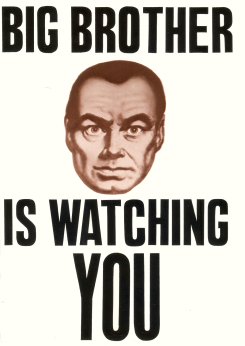Man arrested for email he didn't write, council and police believe they acted correctly

A businessman was arrested at home in front of his wife and young son over an email which council officials deemed ‘offensive’ to gipsies – but which he had not even written.
The email, concerning a planning appeal by a gipsy, included the phrase: ‘It’s the 'do as you likey' attitude that I am against.’
Council staff believed the email was offensive because ‘likey’ rhymes with the derogatory term ‘pikey’.
The 45-year-old IT boss was held in a police cell for four hours until it was established he had nothing to do with the email, which had been sent by one of his then workers, Paul Osmond.
But police had taken his DNA and later confirmed they would be holding it indefinitely.
The businessman, who has asked not to be named, was also fingerprinted in the police investigation estimated to have cost taxpayers up to £12,000.
His computer and other internet equipment were also seized.
The email, from a computer at his company, was sent last August to a website at Rother District Council, in East Sussex, on which the public can comment on planning applications.
It referred to an appeal by gipsy Linda Smith, who wants to keep a mobile home in an area of outstanding beauty overlooking the Battle of Hastings site.
The businessman, a father of two, said last night: ‘I had a sense of total disbelief. My wife and I decided to tell my 11-year-old son I had to go with the police because I had witnessed a road accident.
‘Even though the officers were fairly pleasant to me, I was informed I would be handcuffed if I didn’t go voluntarily. They then confiscated my computer and my wife’s computer and took them to the police station.
‘I was extremely angry. I was relaxing in the comfort of my home on a Sunday afternoon and then I was in a police car under arrest – all for an innocent comment by a colleague.’
He said: ‘I have never had any criminal record and try my best to teach my children right from wrong. This was a ridiculously heavy-handed police reaction to what they perceived as a racist comment. I am not the least bit racist and neither is Paul Osmond. The gipsy family concerned did not complain.
‘I did nothing wrong yet ended up in a police cell for four hours with my DNA stored on a criminal database.’
The case finally ended last week when Mr Osmond, who had been arrested and bailed, was told there would be no further police action. The planning case is continuing.
Mr Osmond, 39, of Icklesham, said: ‘I made it clear to them I am absolutely not racist. I said I was simply registering my objection to this application because it is 200ft from the most important and historical battlefield in the country.
Sussex Police said they had arrested the businessman over ‘suspicion of committing a racial or religious-aggravated offence’.
After consultation with the Crown Prosecution Service, it was decided to take no further action against Mr Osmond.
Chief Inspector Heather Keating said: ‘Sussex Police have a legal duty to promote community cohesion and tackle unlawful discrimination.
‘We are satisfied we acted appropriately in identifying the owner of the computer used and through this, the identity of the writer of the offending line.’
Police said they would hold the innocent men’s DNA indefinitely, which they said was in line with national policy.
A council spokesman said: ‘As far as we were concerned it was an offensive comment, so we got in touch with the police.’











